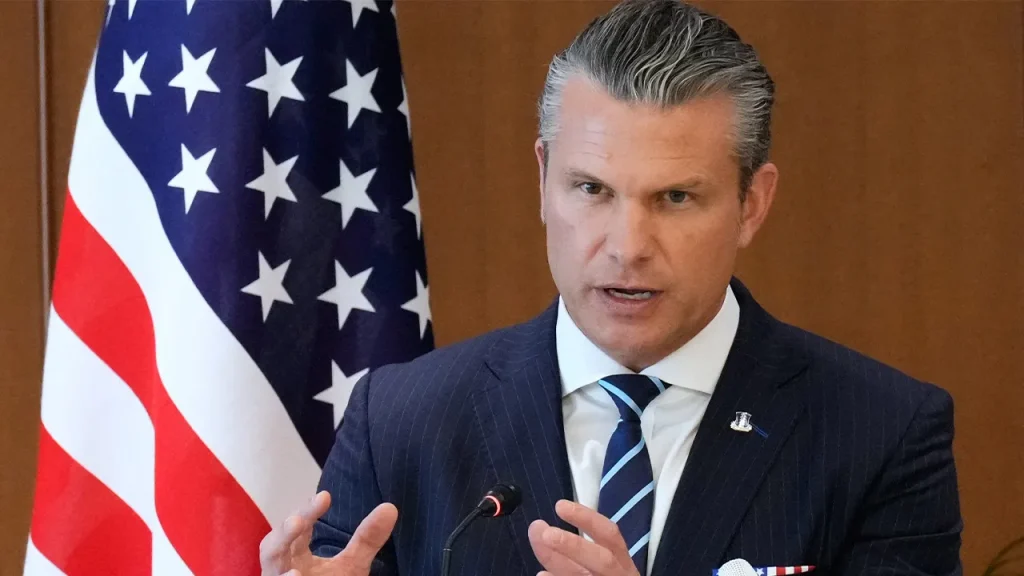Listen to the article
The U.S. military conducted another strike on a suspected narco-trafficking vessel in the Caribbean, killing three alleged smugglers, according to Secretary of War Pete Hegseth. The operation marks the latest in an escalating maritime campaign against drug cartels that the Trump administration has reclassified as terrorist organizations.
“Today, the Department of War carried out a lethal kinetic strike on another narco-trafficking vessel operated by a Designated Terrorist Organization in the Caribbean,” Hegseth announced on social media platform X. He noted that intelligence confirmed the vessel was involved in narcotics smuggling and was traveling along a known trafficking route.
“These narco-terrorists are bringing drugs to our shores to poison Americans at home — and they will not succeed,” Hegseth added, pledging that the military would continue to “track them, map them, hunt them, and kill them” in the same manner as al Qaeda operatives.
This latest strike is the 15th known U.S. operation targeting suspected narco-terror groups in the Caribbean and eastern Pacific since September. Defense officials familiar with the campaign report that at least 64 people have been killed in these operations, underscoring the aggressive nature of what Hegseth has termed a “maritime offensive” against transnational cartels.
President Donald Trump has framed these operations as necessary measures to disrupt the flow of narcotics into the United States. The administration contends that drug cartels have evolved into transnational terrorist organizations, justifying military action under the same authority invoked following the September 11, 2001, attacks.
The legal justification for these strikes has become a point of contention in Washington. The White House has resisted calls from lawmakers demanding greater transparency about which groups are being targeted and how the use of force is being authorized.
Senate Democrats intensified their demands for answers on Friday, sending a letter to Secretary of State Marco Rubio, Director of National Intelligence Tulsi Gabbard, and Hegseth. The letter urged the administration to disclose its legal justifications and provide a list of entities deemed legitimate targets under the president’s directive.
“We also request that you provide all legal opinions related to these strikes and a list of the groups or other entities the President has deemed targetable,” the senators wrote. The letter—signed by Senate Minority Leader Chuck Schumer and several senior Democrats including Sens. Jack Reed and Jeanne Shaheen—accused the administration of selectively disclosing conflicting information to certain lawmakers while keeping others uninformed.
The bipartisan leadership of the Senate Armed Services Committee has also pressed the Pentagon on this issue. They released two previously undisclosed letters sent to Hegseth in late September and early October, requesting that the administration outline its legal framework for the strikes and identify which cartels have been formally designated as terrorist organizations.
The ongoing operations represent a significant shift in how the United States combats drug trafficking. By reclassifying cartels as terrorist organizations and employing military force rather than traditional law enforcement approaches, the Trump administration has fundamentally altered the tactical landscape of counter-narcotics operations.
The aggressive campaign occurs amid growing concerns about the increased potency and availability of illicit drugs entering the United States, particularly synthetic opioids like fentanyl that have contributed to record overdose deaths in recent years.
As the maritime offensive continues, questions remain about its long-term effectiveness, international legal implications, and potential diplomatic consequences, particularly with countries in the Caribbean and Latin America where these operations are being conducted.
Fact Checker
Verify the accuracy of this article using The Disinformation Commission analysis and real-time sources.




5 Comments
These maritime interdiction operations against suspected smugglers highlight the military’s growing role in the drug war. It’s a high-stakes, high-risk approach that could have unintended consequences if not carefully executed.
Interesting development in the war on drugs. I wonder how effective these maritime strikes will be in disrupting the complex narco-trafficking networks. Curious to see if this escalating campaign leads to any meaningful reduction in drug flows to the US.
These strikes certainly seem aggressive, but I’m skeptical they’ll make a major dent in the drug trade long-term. Cartels have proven adept at adapting their tactics.
The Trump administration’s reclassification of drug cartels as terrorist organizations is a bold move. It will be important to monitor whether this shift in framing and military approach leads to tangible impacts on the ground.
Agreed, the new ‘narco-terror’ designation is a significant escalation. It will be crucial to assess if these strikes disrupt trafficking routes or just lead to more violence.